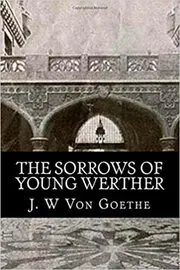The Sorrows of Young Werther Summary
Author: Johann Wolfgang von Goethe
This page offers our The Sorrows of Young Werther summary (Johann Wolfgang von Goethe's book). It opens with an overview of the book, and follows with a concise chapter-by-chapter summary.
Drafted with AI assistance and reviewed by a human editor.
As an Amazon Associate, we earn from qualifying purchases (at no extra cost to you).
This book has 1 recommender!
Overview
A young, academically inclined gentleman sets out to make his living and leave an imprint on the world. His kin anticipate him to secure employment, and his mate, Wilhelm, aids him in seeking opportunities within governmental service. Despite this, the young man harbors aspirations of becoming an artist, an occupation that doesn’t financially provide but aligns with his profound observational and imaginative abilities. He departs his home in spring 1771 and maintains communication with Wilhelm through letters over the following twenty months as he journeys.
As he navigates life, the young man illustrates the dull routine of everyday life offset by the grandeur of the natural world. He finds solace in the spectacular views of nature from his otherwise introspective and somber thoughts. On a property managed by his family, he becomes friends with the local inhabitants and is particularly attached to children. However, he yearns for the mental stimulation he received from educated society. After moving to Walheim, he encounters Charlotte, the attractive offspring of a local judge. Charlotte, who is engaged to a successful entrepreneur, Albert, was entrusted with the care of her nine siblings following the passing of their mother. The young man is instantly smitten by Charlotte, and despite respecting the boundaries of their friendship, he becomes increasingly obsessed with her.
Upon relocating to the court to serve as an attaché to an ambassador in autumn, he invests himself in his work but finds himself at conflict with the culture of the court. He soon resigns from his position due to the resulting social exclusion and criticism following his disregard for class protocols. He spends his time honing his artistic skills while contemplating his future. His melancholic thoughts inevitably return to Charlotte, and despite learning of her marriage to Albert, his love for her remains. A series of unfortunate events, including the passing of a child he was fond of and the loss of beautiful walnut trees, only escalate his suicidal thoughts. His behavior becomes unstable, and Charlotte is forced to limit their interactions. Despite her efforts to maintain their friendship, the young man, unable to live without Charlotte, decides to end his life. His suicide leaves a profound impact, with his burial being devoid of any mourners or clergy.
Edited by
Software engineer whose passion for tracking book recommendations from podcasts inspired the creation of MRB.
Lead investor at 3one4 Capital whose startup expertise and love for books helped shaped MRB and its growth.







Comments
Did we miss something? Have feedback?
Help us improve this page by sharing your thoughts